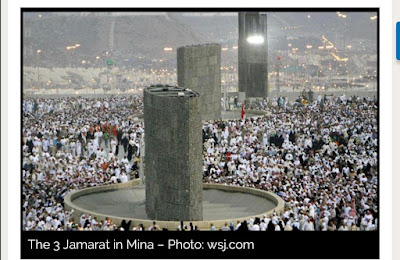By Asma bint Shameem
1. Do not SPECIFICALLY pick the night of Friday (the night between Thursday and Friday) for Qiyaam and special ibaadaat.
Why not?
Because the Prophet sal Allaahu Alayhi wa sallam said:
“Do not single out the night of Jumu’ah [i.e., Thursday night] from among other nights for praying qiyaam al-layl...”(Muslim)
2. Do not fast on Friday by itself.
Why not?
Because he Prophet sal Allaahu Alayhi wa sallam said:
“...do not single out Friday from among other days for fasting, unless it is a fast that one of you regularly observes.” (Muslim)
You may fast on Fridays if you add a day to it either before or after.
3. Do not come to masjid with bad smells such as onion, garlic, smoke, sweat, etc.
Why not?
Because the Prophet sal Allaahu Alayhi wa sallam said:
“Whoever eats garlic or onions, let him keep away from us, or keep away from our masjid and stay in his house.” (al-Bukhaari, Muslim)
And he said:
“Whoever eats onions, garlic or leeks, let him not approach our masjid, for the angels are annoyed by the same things that annoy the sons of Adam.” (Muslim)
Rather, it’s recommended to bathe and put on nice, clean clothes so that we don’t bother anyone with our smells and odors.
Also it’s recommended to put on perfume if you’re a man.
The Prophet sal Allaahu Alayhi wa sallam said:
“It is the duty of every Muslim to do ghusl on Friday, and to use the siwaak and put on perfume (men only), if his family has any.” (Ahmad- saheeh by Shu’ayb al-Arna’oot)
4. Do not step over people to get to a particular spot.
Why not?
Because once a man came and started stepping over the people one Friday when the Messenger of Allaah Sal Allaahu Alaiyhi wa Sallam was delivering the khutbah, and the Prophet Sal Allaahu Alaiyhi wa Sallam said to him:
“Sit down, for you have annoyed (people).” (Abu Dawood-saheeh by al-Albaani)
5. Do not disturb the Saff (row) and do not force yourself in between two people.
Why not?
Because the Prophet sal Allaahu Alayhi wa sallam said:
"If a man takes a bath on Friday, purifies himself thoroughly wears any perfume which is available in the house, sets forth for the masjid, *does not (forcibly) sit between two persons*, offers the prayer that is prescribed for him and listens to the Imaam silently, his sins between this Friday and the previous Friday will be forgiven.''(al-Bukhaari).
And he said:
“It is not lawful for a man to sit between two people unless he has their permission.” (Abu Dawud- saheeh by Ahmad Shakir)
6. Do not make people move to sit in their place instead.
Why not?
Because the Prophet Sal Allaahu Alaiyhi wa Sallam said:
"Let no one move his brother on the day of Jumu'ah and sit in his place, instead he should say: 'make space.'"(Muslim)
And:
“Do not ask someone to give up his seat to another, but rather make it easy and provide accommodation.” (Muslim)
7. Do not put on any fragrance when coming to the Masjid, if you’re a woman.
Why not?
Because the Prophet sal Allaahu Alayhi wa sallam said to the female companions:
“If one of you attends the masjid, let her not put on perfume.” (Muslim)
And he said:
“Any woman who puts on perfume and passes by people so that they can smell her fragrance is a zaaniyah (adulteress!).”
(Ahmad and al-Nasaa’i -hasan by al-Albaani)
8. Do not dress inappropriately (especially) when coming to the masjid if you’re a woman.
Why not?
Because Allaah says:
“And tell the believing women...not to show off their adornment except only that which is apparent, and to draw their veils all over themselves…” (Surah al-Noor :31)
So cover your hair and body properly before you come to the masjid, wearing simple, clean clothes.
Do not be dressed with makeup, jewelry and fancy attire.
Our Mother Aaishah radhi Allaahu anhaa said:
“If the Messenger of Allaah Sal Allaahu Alaiyhi wa Sallam could see what women have introduced after he died, he would have forbidden them to go to the masjids, as the women of the Children of Israel were forbidden” (referring to beautiful clothing, perfume and adornment).”
If she said that about the women of HER time, what would she say if she saw the women of OUR time!!
9. Do not say “Jumu’ah Mubarak” or Congratulations for Friday
Why not?
Because the Prophet sal Allaahu Alayhi wa sallam and the Sahaabah did not congratulate each other on Fridays.
They NEVER said “Jumu’ah Mubaarak” to each other nor did they think it was right to do so.
Shaikh al-Fawzaan said:
"The early generation did not congratulate one another on Fridays, so we should not introduce anything that they did not do"
(Ajwabat As’ilah Majallat al-Da‘wah al-Islamiyyah)
Sheikh Abdul Muhsin Al Abbaad was asked:
“Based on the premise that Friday is a (Eid) holiday, is it permissible to greet each other saying, Ju’muaah Mubaarak or Ju’muaah Accepted?
The Shaikh said:
“By Allaah, we don’t know of anything that proves the validity of this.”
And Allaah knows best.




